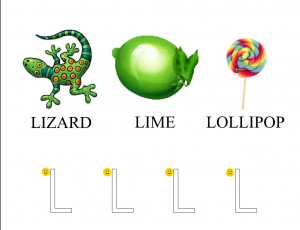We’ve been focusing on engagement with Zip. As the Guide, we are not instructing or showing exactly how to do something. RDI explains the Guide state of mind as “a combination of feeling fully mentally engaged, yet also relaxed and open to making new discoveries and not having to perform in a specific manner.” An Engagement should always have some element of uncertainty or challenge. Even the Guide does not know exactly how the engagement will play out.
Basically we’re trying to engage with him several times a day in an authentic way. He’s been making it difficult as he tries so hard to control every interaction. He wants to be with us, demands attention from us, but on his terms. We are trying to turn everyday interactions into opportunities for turn-taking. We can take turns singing songs, doing fingerplays, eating together, brushing our teeth together, etc.
This week, Zip was rather resistant to turn-taking. He can be very possessive with objects so that is where I had the most trouble. We took turns putting plastic magnetic letters into a clean mayonnaise jar. He was really not impressed with this idea until I showed him how it dumps out. He loves anything that is like confetti. Zip rushed through the turn-taking part and I had to be careful that he didn’t just take the letter out of my hand on my turn. Clearly, an area that we’ll continue to focus on.
We continued to work on everyday activities like loading laundry. Zip is great with assembly-line but doesn’t seem to notice when I switch to turn-taking. I think I need to slow down and pause to highlight more.
I’m due for an in-person appointment with our consultant. She’s great and we get alot done. I’m sure she’ll have some ideas on working on this objective.
 Mysteriously, Zip’s clothing sensitivity seems to have decreased. Last year it got so bad, I had to go out and buy all new shirts without anything on them. And he would only wear soft sweatpants. A few days ago, while I sorted through his winter clothes, he agreed to try on several pairs of pants. That was very unusual. I bought him some jeans, just-in-case-he-might-wear-them-someday. Today, he put them on with no protest. He’s still wearing them right now. Yeah!
Mysteriously, Zip’s clothing sensitivity seems to have decreased. Last year it got so bad, I had to go out and buy all new shirts without anything on them. And he would only wear soft sweatpants. A few days ago, while I sorted through his winter clothes, he agreed to try on several pairs of pants. That was very unusual. I bought him some jeans, just-in-case-he-might-wear-them-someday. Today, he put them on with no protest. He’s still wearing them right now. Yeah! We’ve been homeschooling lightly so far since August. And I’ve learned a few things since then. Back in August, I was having a blast picking out homeschool curriculum for Zip. I love looking at curriculum. Don’t tell anyone, but I have a secret addiction for organizers, office supplies, and strollers, so I’m sure I’m at risk for curriculum problem behavior.
We’ve been homeschooling lightly so far since August. And I’ve learned a few things since then. Back in August, I was having a blast picking out homeschool curriculum for Zip. I love looking at curriculum. Don’t tell anyone, but I have a secret addiction for organizers, office supplies, and strollers, so I’m sure I’m at risk for curriculum problem behavior. As I don’t meet too many other RDI families in real life, I often find myself explaining what exactly it is and what we do. I wish I had cute little cards with the RDI website address and a few key quotes on them. Seriously. So I love when I find another good description as in this blog,
As I don’t meet too many other RDI families in real life, I often find myself explaining what exactly it is and what we do. I wish I had cute little cards with the RDI website address and a few key quotes on them. Seriously. So I love when I find another good description as in this blog,  I decided to take a step back and work on some self-care and hygiene issues with Zip. To motivate him, we decided, after much thought, to withhold videos and computer time, to keep them as a reward for learning certain essential skills. It’s been a little tough, but Zip understands the idea. I reinforce it by letting him have a video after trying very hard at these skills.
I decided to take a step back and work on some self-care and hygiene issues with Zip. To motivate him, we decided, after much thought, to withhold videos and computer time, to keep them as a reward for learning certain essential skills. It’s been a little tough, but Zip understands the idea. I reinforce it by letting him have a video after trying very hard at these skills.